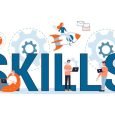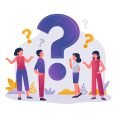
Introduction
For individuals with autism, the ability to navigate social interactions is a vital aspect of their overall development and well-being. Social skills encompass a range of abilities, from recognizing emotions to engaging in effective communication and building meaningful relationships. Developing these skills can significantly impact their quality of life and open doors to opportunities.
Understanding Autism and Social Challenges
Autism, a complex neurodevelopmental disorder, often leads to difficulties in understanding and responding to social cues. Individuals with autism may struggle with nonverbal communication, maintaining eye contact, and understanding the emotions of others. These challenges can lead to social isolation and hinder their integration into various social settings.
The Significance of a Specialized Social Skills Curriculum
A specialized social skills curriculum holds immense importance in addressing the unique needs of individuals with autism. It provides a structured framework to systematically nurture their social skills, enhancing their ability to engage with others and navigate the complexities of social interactions.
Key Components of an Effective Social Skills Curriculum
4.1 Building Self-Awareness and Emotional Recognition
Developing self-awareness is the foundation of effective social skills training. By recognizing and understanding their own emotions, individuals with autism can better comprehend the feelings of others.
4.2 Enhancing Communication Skills
Communication lies at the heart of human interaction. A robust social skills curriculum focuses on improving verbal and nonverbal communication, teaching individuals with autism how to express themselves clearly and interpret the intentions of others.
4.3 Navigating Social Cues and Context
Understanding social cues and context is a vital aspect of successful social interactions. A comprehensive curriculum helps individuals with autism decipher body language, tone of voice, and situational nuances.
4.4 Developing Friendship Skills
Forming and maintaining friendships can be challenging for individuals with autism. A specialized curriculum equips them with the skills to initiate conversations, share interests, and cultivate meaningful connections.
Tailoring the Curriculum to Individual Needs
Recognizing that every individual with autism is unique, an effective social skills curriculum takes into account their strengths, challenges, and personal preferences. Personalized approaches ensure that the curriculum resonates with each learner, maximizing engagement and retention.
Implementing the Curriculum: Strategies and Approaches
The implementation of a social skills curriculum involves a collaborative effort between educators, therapists, and parents. Applied behavior analysis (ABA), role-playing exercises, and real-life simulations are some of the strategies used to reinforce learning in various contexts.
Collaboration Between Educators, Therapists, and Parents
Effective social skills development extends beyond the classroom. Collaborative efforts between educators, therapists, and parents create a holistic support system that reinforces the curriculum’s teachings and encourages consistent practice.
Measuring Success: Assessing Social Growth and Progress
Tracking progress is essential to gauge the effectiveness of the curriculum. Data-driven assessments and regular evaluations help measure social growth, identify areas for improvement, and tailor the curriculum accordingly.
Real-Life Benefits: How Social Skills Transform Lives
The positive impact of a specialized social skills curriculum extends far beyond social interactions. Improved communication, increased self-confidence, and enhanced emotional regulation contribute to a higher quality of life and greater independence.
Challenges and Solutions in Social Skills Training
Implementing a social skills curriculum may encounter challenges such as individual variability and the need for ongoing support. However, adaptable strategies and a flexible curriculum can address these challenges effectively.
Breaking Barriers: Redefining Social Norms
A well-designed curriculum challenges societal misconceptions and biases about autism. By promoting understanding and acceptance, it contributes to creating a more inclusive and compassionate society.
The Role of Inclusion in Fostering Acceptance
Inclusion plays a pivotal role in the success of social skills training. Interactions with neurotypical peers provide individuals with autism the opportunity to practice and generalize their skills in authentic settings.
Empowering Individuals with Autism for Life
A comprehensive social skills curriculum equips individuals with autism with essential life skills. These skills empower them to pursue higher education, gain meaningful employment, and lead fulfilling lives.
Understanding the Evolving Nature of Social Skills
Social skills development is a continuous journey. As individuals grow and encounter new experiences, the curriculum adapts to address evolving needs, ensuring ongoing progress.
Conclusion
A well-structured social skills curriculum tailored to the unique needs of individuals with autism is a transformative tool that fosters connection, understanding, and growth. By imparting vital social skills, we pave the way for a more inclusive and compassionate society.
Frequently Asked Questions
- Q: How can educators make social skills training enjoyable for individuals with autism? A: Incorporating interactive games, role-playing, and incorporating their interests can make learning engaging and enjoyable.
- Q: What role do parents play in reinforcing social skills outside of the classroom? A: Parents can create opportunities for real-life practice, offer positive reinforcement, and provide a supportive environment for their child’s growth.
- Q: Is there an optimal age to start social skills training? A: Early intervention is beneficial, but individuals of all ages can benefit from tailored social skills training.
- Q: How can society contribute to the inclusion of individuals with autism? A: Raising awareness, promoting acceptance, and creating inclusive spaces can contribute to a more supportive society.



